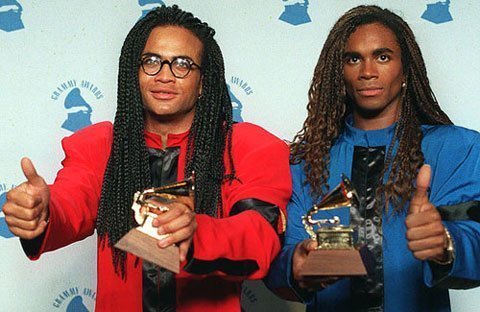
A letter from the editor of Zumic:
In response to an article that was published at Billboard.com last month, there has been a change in Zumic policy. Until further notice, Zumic will completely stop reporting Billboard chart positions. In essence, I decided that the Billboard Hot 100 is blatantly flawed and a terrible measuring stick for the music industry.
In the article — Ask Billboard: How Does The Hot 100 Work? — the formula for the Hot 100 was disclosed:
Generally speaking, our Hot 100 formula targets a ratio of sales (35-45%), airplay (30-40%) and streaming (20-30%).
Of course, that's an overall target for 100 songs each week. That mark can change week-to-week. This week, though, the Hot 100 breaks down in line with the formula's intent: sales, 39%; airplay, 34%; and, streaming, 27%.
And, week-to-week, some songs show largely along those percentages, while others skew noticeably toward any of the chart's three metrics.
Saying that these numbers can be valued within a range of 10% on a week-to-week basis is absurd. I think a fair comparison would be to the NFL declaring after a game that a field goal was only worth 2.85 points and a touchdown was worth 7.35 points on a particular week to get the results they wanted. When an outsider has this much control over winners and losers, it's completely unfair to the people who make music and the audiences who consume it.
Due to the arbitrary nature of this methodology, I began considering the overall implications of such a subjective system. How do they decide from week to week? I haven't been able to find an answer. Billboard did not respond to Zumic's request for comment.
Beyond the internet "bot" issue that could allow internet hustlers to inflate the numbers, there's the idea that online music videos like like Robin Thicke's "Blurred Lines" and Miley Cyrus' "Wrecking Ball" are pornographic in nature and people are playing the video mainly to see beautiful naked women. In some ways, this is a trick to boost a song's Billboard chart position, which gets more attention, which results in more plays, and the vicious cycle continues to spin while the overall quality of popular music suffers.
Another major issue is that radio airplay counts for 30-40% of the overall formula which is almost on par with record sales. That gives a corporation like Clear Channel way too much control over what does well on the charts. Plus, a lot of independent radio stations don't report to the charts, so many artists that are played on those stations don't receive their fair recognition.
Even the Billboard 200 — considered the authoritative album chart because it's based entirely on sales — is not to be trusted.
I have heard stories from reliable sources that artists' management and record labels have been known to purchase records at wholesale in order to manipulate their chart position. The idea behind this is that a strong debut could help create national "buzz" and momentum for the artist. Last year, a BBC documentary was released that detailed how The Beatles' manager Brian Epstein did this to score their first big hit, "Love Me Do," in 1962. Smart move or sleazy? Maybe both.
In musicians' careers, releasing a song or album that's on the Billboard charts is considered by some to be an important part of their reputation and credibility. Sadly, that distinction means less now than it ever has in the past. The overall decline of record sales has certainly made things much easier for corporate interests to manipulate, which has in turn made record labels spend more money on clever marketing than it has on developing talent.
Many of the artists at the top of the Billboard charts are guilty of lip-syncing on stage and using pre-recorded music. Milli Vanilli and Ashlee Simpson are among the more blatant failures in this practice. These days, singers use auto-tune because they flat out can't sing on key. Pop stars are manufactured by teams of songwriters and producers, while genuine musicians with legitimate followings are left out in the cold. Adult music fans like myself have become disillusioned by the system that seems completely out of touch with the real world.

Milli Vanilli had three #1 hits on the Billboard Hot 100, as seen on billboard.com:

The straw that broke the camel's back in this case came when I went to the Billboard Rock Charts and found that Lorde claimed the top chart position in 6 of 9 charts. Yes, she's very popular right now... BUT SHE ISN'T A ROCK ARTIST! Only a paper shuffling moron would consider Lorde to be a rock artist.
The beauty of the internet age is the inherent democracy of it. People have a choice as to what they want to hear, and they have a right to change their mind at any time. As Editor-in-Chief of Zumic, I look through our traffic analytics numbers every day to see what pages get the most hits and what our audience is most interested in. It's not an exact science, and it doesn't claim to be. I'll continue to look at numbers from Billboard, YouTube, Spotify, SoundCloud, and lots of other research — and I'll do that with a healthy dose of skepticism. That helps us provide better service to our users.
We're aware that numbers can be deceiving. That's why we focus on the music. We report on what musicians do on stage and in the studio. We make decisions based on the music that we listen to with our ears and our knowledge of the subject.
The most important number to us right now is ticket sales, because it's a lot harder to manipulate the number of people who go out and pay to be part of the audience.
Based on current market conditions, no self-respecting music publication should be reporting on the Billboard Hot 100 as an objective measure of importance, and Zumic will certainly not be.
Editor's note: Minor edits were made to this letter on January 25, 2015.












